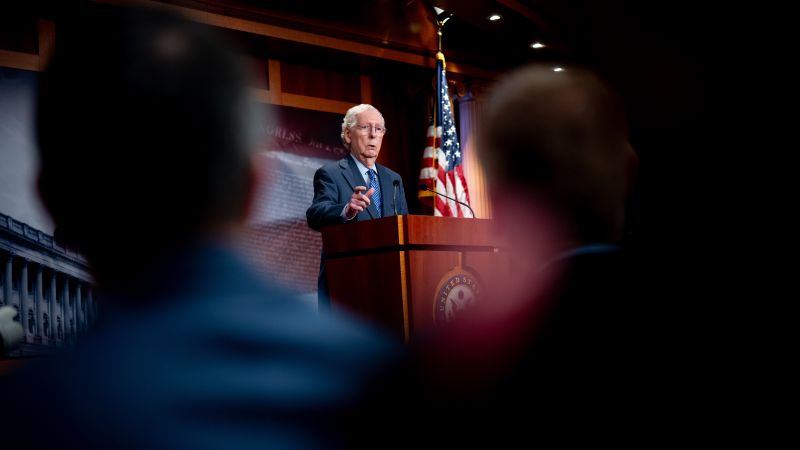Senate Minority Leader Mitch McConnell reiterated his belief that presidents should not have absolute immunity from criminal prosecution while in office, despite being pressed on his stance following former President Donald Trump’s second impeachment trial. McConnell had voted to acquit Trump but blamed him for provoking the Capitol riot on January 6 and acknowledged that former presidents should not be immune from accountability through civil litigation or criminal prosecution. McConnell pointed to the case currently pending before the Supreme Court, where Trump is seeking to avoid federal prosecution over his efforts to overturn the 2020 election.
McConnell acknowledged the need for some form of immunity for the president to prevent them from being constantly embroiled in legal battles, but emphasized that the Supreme Court would ultimately decide on the matter. Following nearly three hours of oral arguments, the Supreme Court appeared inclined to reject Trump’s claims of sweeping immunity and the broad protections he sought to avoid the federal election subversion case. Trump contends that the conduct he is being charged over was part of his official duties as president, thereby shielding him from criminal liability.
The relationship between McConnell and Trump has been strained, with reports indicating they had not spoken in over three years. Despite their differences, McConnell endorsed Trump in March after the former president secured significant victories on Super Tuesday, indicating that Trump had the necessary support from Republican voters to be the GOP nominee. McConnell’s endorsement came amid disagreements within his party over various issues, including Ukraine aid and his willingness to negotiate with Democrats. McConnell will step down as the Senate’s Republican leader in November, further indicating a shift within the party’s leadership.
The Supreme Court’s handling of Trump’s case is being closely watched, as it could have significant implications for the extent of a president’s immunity from criminal prosecution while in office. The court’s decision will determine whether Trump can be held accountable for his actions concerning the 2020 election and potentially set a precedent for future presidents. McConnell’s stance underscores the importance of maintaining checks and balances on presidential power, ensuring that former presidents can be held accountable for any wrongdoing after leaving office.
McConnell’s comments reflect a broader debate within the Republican Party about the extent of presidential immunity and the balance of power between the branches of government. While McConnell has faced criticism for various decisions, including his handling of Trump’s impeachment trials, his willingness to hold the former president accountable for his actions demonstrates a commitment to upholding the rule of law. As the Supreme Court deliberates on the case, McConnell’s position highlights the importance of ensuring that no individual, including the president, is above the law and subject to appropriate legal scrutiny.















